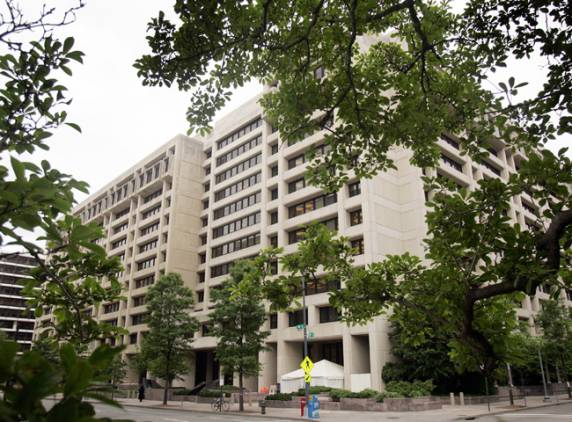By Islam Serour
Former Finance Minister Dr Samir Radwan told al-Arabiya News that he expects the International Monetary Fund (IMF) to demand that Egypt devalue the Egyptian pound. However, Radwan stressed that there should be new steps to inject new investments into the Egyptian economy in order to overcome such critical phase.
Angus Blair, founder of the Signet Institute; a think tank for analysis of the Middle East and North Africa’s economies and political environment, told the Daily News Egypt that “firstly, this is Dr Radwan’s opinion, and it may well be the case that the IMF may not put a devaluation as part of its conditionality on the loan.”
Blair added that, “in our view, and in the view of most economists, it would make sense to see a managed devaluation which would allow Egypt to become more competitive and attract investment, which could, as part of a package of policies, help to grow the economy.”
In the aftermath of the 25 January 2011 uprising, the Egyptian economy has suffered a severe financial crisis, manifested in a widening state budget deficit, dwindling foreign currency reserves, and soaring inflation. In addition, many foreign investors have fled the country and domestic industrial development was paralysed due to the lack of political stability, putting the country’s economy into a state of stagnation, and worsening Egypt’s looming social problems.
“Egypt’s current account was in surplus for some years due to high levels of inward foreign direct investment, tourism revenues and foreign purchases in its capital markets. All three sources of revenue have fallen, with the end result being a current account deficit,” Blair explained.
These deficits, according to Blair, require funding and in the current global environment, this has become more difficult. The long term structural trade deficit should have been a major priority for years but apart from some improvement in being able to invest in Egypt, not enough has been done to encourage diversification in industrial investment and production.
“Egypt’s total external government debt to GDP is 12.8 percent, a rate which is low and sustainable, compared to many other countries,” Blair said.
An IMF mission is expected to visit Cairo by the end of August for further talks with Egyptian officials over a $ 3.2 billion loan requested by the Egyptian government. News reports quoted Momtaz Saeed, stating that the goal of the Egyptian government is to acquire a certificate that allows international institutions to provide Egypt with loans, not the loan itself.
Negotiations between the Egyptian government and the IMF had stalled for several months due to lack of consensus among different political factions over the IMF loan, until the newly appointed cabinet of Prime Minister Hesham Qandil resumed talks. Former Minister of Planning and International Co-operation, Fayza Abouelnaga, said the dissolved Islamist-dominated parliament was the obstruction to the economic reform programme prepared by former Prime Minister Kamal el-Ganzouri’s cabinet. Accordingly, the IMF pre-conditioned political consensus before granting any loans.



